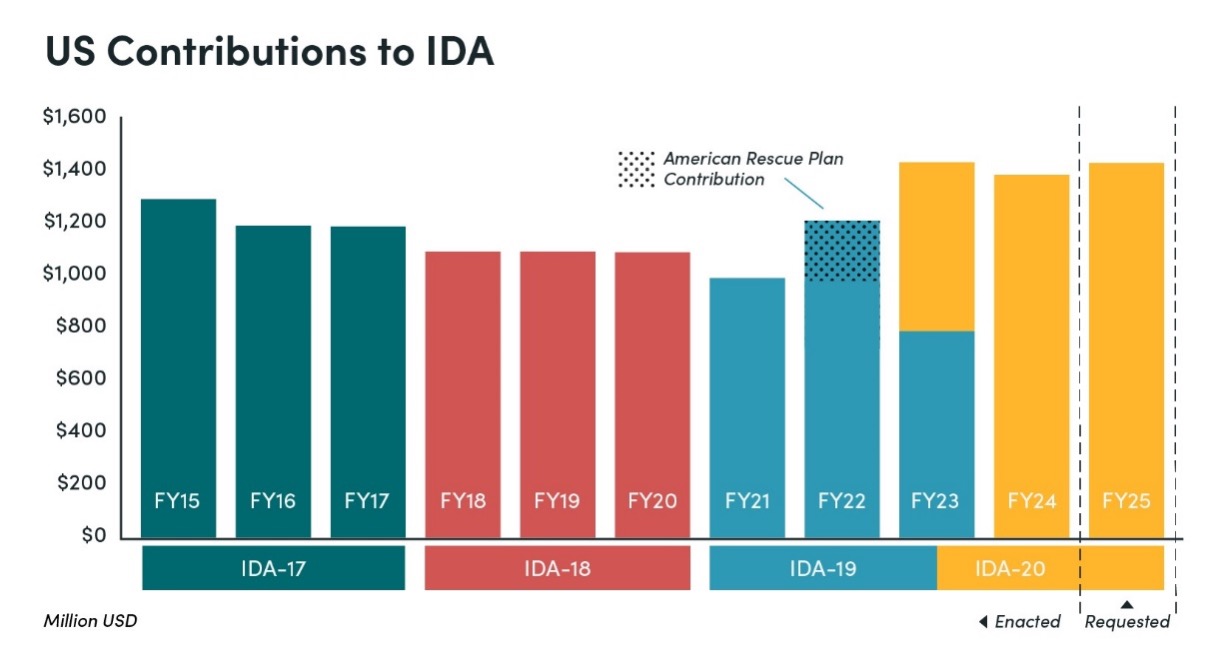It’s a time of fundamental uncertainty about the future direction of US development policy, so let’s talk fundamentals.
1. Foreign assistance is not charity. It is in our direct national interest.
US development policy, including foreign assistance, is an essential tool to promote US security and economic objectives. Yes, the less than one percent of the US federal budget spent on foreign assistance may appeal to our altruistic side, but fundamentally it is about promoting US interests in the world. Presidents and Congresses past have strongly supported good development policy and spending on foreign assistance because, ultimately, it’s the smart thing to do for Americans.
We are safer as a country because we invest in development. US leadership on the Ebola outbreak helped contain the pandemic when it threated to spread rapidly around the world. Right now, US assistance to other countries is helping to control the spread of the Zika virus. US foreign assistance supports efforts to disrupt terrorist financing and defend populations around the world that are vulnerable to groups hostile to the United States. US support for efforts by the IMF and multilateral development banks to prevent and contain financial crises around the world safeguard our markets at home.
And it’s not just about Americans’ security in the face of threats. The economic success of poorer countries benefits us at home. Yesterday’s aid recipients are among today’s largest markets for US goods and services. In the years following the Korean War, South Korea, then among the world’s poorest countries, was a major recipient of US assistance. Today, South Korea has itself become a major donor and is one of America’s largest export markets. US exports to developing countries total more than $600 billion annually and are greater than US exports to China, Europe, and Japan combined.
2. Development works.
There has been a sea change in US development programs over the past decade toward a relentless focus on results—results measured in lives saved and poverty reduced; not just dollars spent. US taxpayer-funded programs have contributed to a reduction in child mortality rates of nearly half around the world. Under initiatives launched by President George W. Bush, the United States helped prevent 30 million new HIV infections and nearly 8 million AIDS-related deaths, and with US leadership, we are within reach of fully eliminating diseases like polio and malaria that have plagued humankind for millennia. Under more recent initiatives launched by President Obama, support for small farmers in poor countries helped reduce overall poverty and child stunting by up to a third in target countries. Another initiative is bringing electricity for the first time to homes and businesses in Sub-Saharan Africa, which will enable hospitals to operate more effectively, children to study at night, and women to move safely through their communities. Congress passed legislation earlier this year to ensure both programs continue.
3. US leadership matters on global threats.
The United States alone cannot be everywhere and do everything. That’s why US policy has already shifted toward multilateral solutions in recent years, whether in response to the threat posed by climate change, fast-moving pandemics, or humanitarian crises emanating from armed conflicts around the world. If the United States does not continue to lead in multilateral settings like the UN, the World Bank, the IMF, and the G20, no one else will.
CGD has had things to say over the years in each of these areas about how US efforts could be improved, based on our researchers' reading of the evidence. That’s the Center's job.
At the same time, in our view much of what CGD has had to say is based on a core premise that too often goes unstated. Namely, that US development policy, with bipartisan support, has made steady progress over many years as one of the more effective things our government does. It is, day in and day out, advancing US interests around the world and at home.
While we at CGD's Rethinking US Development Policy Initiative are often promoting changes and reforms to existing programs and policies, and may sound quite critical of the status quo in the process, we nonetheless recognize the fundamental value of what exists today—and that this status quo has vastly improved in the last decade and can continue to do so.
As a self-proclaimed “outsider” administration takes office in two months, we will be revisiting these fundamentals. We will be eager to engage with this administration on any and all good ideas to improve US development policy.
But we also see the need to bring evidence to bear in support of existing agencies, mandates, and missions. That’s why you will be seeing a new series of briefs in the months ahead that address basic components of US policy when it comes to development and identifying the core value of these things as we see them, informed by evidence and experience.
You can still count on CGD for the cutting-edge of research in development. But new research always rests on a base of existing knowledge, and right now, that base needs more of a spotlight.
Disclaimer
CGD blog posts reflect the views of the authors, drawing on prior research and experience in their areas of expertise. CGD is a nonpartisan, independent organization and does not take institutional positions.





